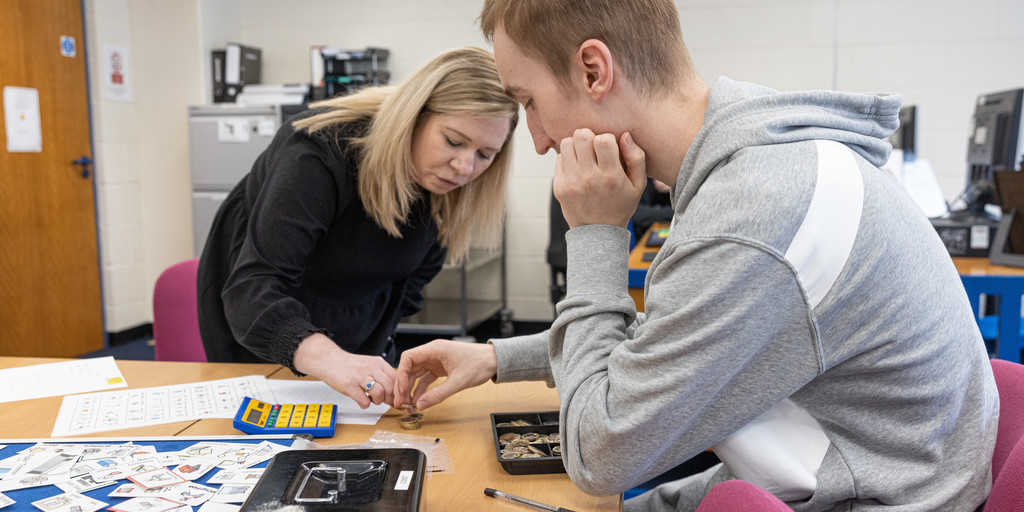Why Rishi Sunak is wrong about our benefits system

On Friday, the Prime Minister pledged to tackle Britain’s so-called ‘sick note culture’. Promising to ‘control welfare’ if re-elected, he announced that the Government would consult on reforming Personal Independence Payments.
We don’t know yet exactly how the reforms will affect people with complex disabilities. And it’s important to say that nothing will change anytime soon – the proposals won’t be introduced until at least after the election, if at all.
But there was plenty in the Prime Minister’s speech that left us concerned.
It wasn’t just the proposals themselves. The Government’s whole narrative around disability benefits right now is harmful.
People with complex disabilities aren’t ‘shirkers’ or ‘scroungers’ looking to take the benefits system for a ride.
Aside from the rhetoric, we are concerned about what Rishi Sunak had to say about reforming Personal Independence Payment.
What did the Prime Minister say?
The Prime Minister started by saying some of the right things. He acknowledged that not every disabled person will enter employment, and that the welfare system should always be there for people who cannot work. He added, too, that disability benefits should ‘help people overcome whatever barriers they might face to living an independent, fulfilling life.’
If only he had ended there.
Singling out the rise in benefits claims for mental health reasons, Sunak said that the rising cost of social security was unsustainable. He promised that, if elected again, that the next Conservative Government would ‘control’ the welfare bill.
Moving onto how he would do this, the Prime Minister set out some proposed changes to the sick notes used by people who are off work due to illness.
He also reiterated the measures the Government had already taken, like the previously announced reforms to the Work Capability Assessment.
And then, he turned his sights onto Personal Independence Payment.
Is PIP being ‘misused’?
Personal Independence Payments (PIP) are designed to help disabled people pay for extra costs related to their condition or impairment. Depending on the rate someone is awarded, PIP is worth between £28.70 and £184.30 a week.
According to the Prime Minister, PIP is being ‘misused’. The Government is therefore going to look into whether the benefits system should move away from giving disabled people regular fixed amounts in the form of PIP.
Questioning whether it was always right to offer ongoing support for disabled people’s extra costs, he said that much of the support and equipment they need are either one-off costs or available for free on the NHS.
This is simply not the case. Sense research has found that 46% of people with complex disabilities find it difficult to afford their extra costs.
This has been particularly clear during the cost of living crisis, with rising energy bills having a catastrophic impact on disabled people.
Some disabled people, for example, may need to run powered medical equipment at home. But while the NHS offers a rebate for the cost of running oxygen concentrators at home, disabled people who use other machines like ventilators and feeding machines get no financial help for this at all.
If anything, disabled people don’t get nearly enough support to cover the extra costs they face.
Making PIP ‘more rigorous’
Worryingly, the Prime Minister also talked about making PIP ‘more rigorous’, saying that the application process should be more ‘objective’, with a greater emphasis on medical evidence.
But ask anyone on PIP, and they will tell you that the application process is already challenging enough.
Whether it’s forms that are too long and too complicated, or assessors who don’t understand someone’s condition or impairment, there are too many barriers facing disabled people who just want the support they’re entitled to.
It’s not really clear what Rishi Sunak’s words will mean in practice. We’ll have to wait until the Government publishes the proposals in full before we know how they might affect people with complex disabilities.
Yet we doubt the changes would make disabled people’s lives any easier.
What next?
It’s important to say that if you are already on PIP, you don’t need to worry about any sudden changes to the support you receive.
And as these proposals are still in a very early stage of development, PIP won’t be undergoing reform any time soon.
The Government will be publishing its consultation on reforming PIP ‘over the coming days’. Sense will be responding to the consultation, setting out why we think the proposals are unfair to disabled people.
The reforms won’t go any further before the general election. During our election campaign, we’ll be challenging all parties to offer disabled people the support they need to lead meaningful and independent lives.

